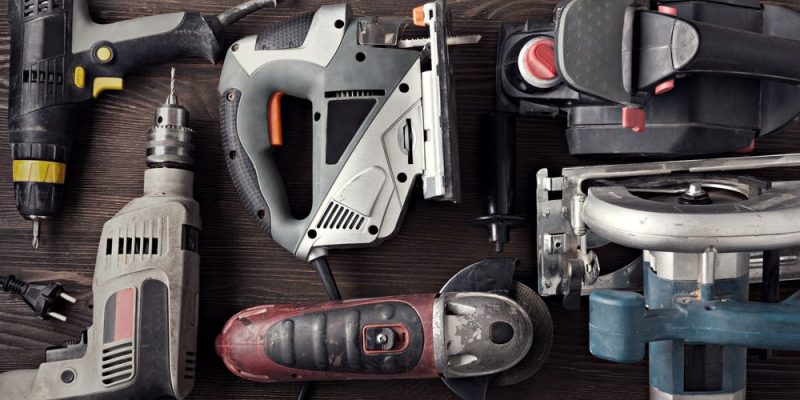Work on Tools: What It Means and How to Build a Career With Your Hands

In a world increasingly driven by digital solutions and virtual workspaces, the demand for skilled professionals who “work on tools” has never been more critical. From electricians and mechanics to plumbers and carpenters, these are the hands-on workers who keep infrastructure, machinery, and systems functioning efficiently.
If you’re exploring a trade career or looking to understand what it means to “work on tools,” this guide will provide the insights, pathways, and practical advice to help you succeed.
What Does “Work on Tools” Mean?
To “work on tools” means to perform manual, technical, or mechanical work using physical tools and equipment. This phrase is commonly used in trade industries to describe employees who are actively involved in:
- Construction
- Electrical installation
- Automotive repair
- Plumbing
- HVAC servicing
- Welding
- Carpentry
- Manufacturing or assembly lines
These roles are distinct from managerial, administrative, or planning positions—they involve direct, hands-on work.
Who Typically Works on Tools?
Professionals in the following roles are considered “on the tools”:
| Job Title | Description |
| Electricians | Install and maintain electrical systems |
| Plumbers | Repair and install water and drainage systems |
| Mechanics | Service and fix vehicles and engines |
| HVAC Technicians | Handle heating, cooling, and ventilation |
| Carpenters | Build or repair structures with wood |
| Welders | Fuse metal parts together |
| Construction Workers | Perform tasks on building sites |
| Maintenance Technicians | Repair equipment and systems in facilities |
Why Work on Tools? Benefits of a Hands-On Career
High Demand and Job Security
Skilled trades are essential to every economy. Electricians, plumbers, and technicians are constantly in demand, often with shortages in many regions.
Good Pay Without a Degree
Many skilled trades pay $50,000–$100,000+ annually, depending on experience and specialization—with no 4-year degree required.
Job Satisfaction
Many who work on tools enjoy tangible results, problem-solving, and the physical nature of the work.
Entrepreneurship Opportunities
Skilled professionals often start their own businesses or work as independent contractors.
Variety and Travel
Work may occur at different job sites, locally or abroad, with new challenges daily.
Skills Required to Work on Tools
To thrive in a hands-on role, you’ll need a mix of technical and soft skills:
Technical Skills:
- Blueprint or schematic reading
- Tool and equipment handling
- Safety procedures and compliance
- Installation and troubleshooting
- Measurement and precision work
Soft Skills:
- Problem-solving
- Attention to detail
- Physical stamina
- Communication and teamwork
- Time management
Many of these skills can be learned through apprenticeships, trade school, or vocational training.
How to Start Working on Tools: Step-by-Step Guide
Step 1: Choose a Trade or Industry
Determine your interest—construction, mechanics, electrical, HVAC, etc. Research job roles and demand in your area.
Step 2: Enroll in Trade School or Certification Program
Community colleges and vocational institutions offer training that includes both theory and hands-on practice.
Step 3: Complete an Apprenticeship
Gain paid, on-the-job experience under the guidance of a licensed professional. This step is required for many trades.
Step 4: Get Licensed or Certified
Check state or country requirements for licensing, especially in regulated trades like electrical or plumbing.
Step 5: Continue Learning
Many trades evolve with technology. Stay updated on tools, safety codes, and new techniques through workshops or continuing education.
Tools Commonly Used in Hands-On Jobs
| Tool Category | Examples |
| Hand Tools | Hammers, wrenches, pliers, screwdrivers |
| Power Tools | Drills, grinders, saws, impact drivers |
| Measuring Tools | Tape measures, laser levels, calipers |
| Safety Equipment | Gloves, hard hats, safety goggles |
| Diagnostic Tools | Multimeters, pressure gauges, scanners |
Knowing how to safely use and maintain tools is fundamental to working in any trade.
Demand for Skilled Workers in Trades
According to industry data:
- The U.S. alone faces a shortage of over 500,000 skilled tradespeople
- Electricians and HVAC technicians are among the top 10 most in-demand jobs
- Many skilled professionals are nearing retirement, creating new opportunities for younger workers
If you’re considering a career change or are just starting out, learning to work on tools can lead to high-paying and fulfilling roles.
Conclusion
If you value practical work, real-world problem-solving, and financial independence, then working on tools might be the career path for you. From plumbing and welding to HVAC and construction, the trades are filled with rewarding opportunities that allow you to build, fix, and make an impact every day.
Tools don’t just build things—they build futures.
FAQs
1. Do I need a degree to work on tools?
No. Most trades require vocational training, certifications, or apprenticeships—not a college degree.
2. Is working on tools physically demanding?
Yes. Many roles involve manual labor, lifting, bending, or working in different environments. Good physical fitness helps.
3. Can I switch from working on tools to a management role?
Absolutely. Many supervisors and project managers start out in the field, then transition to leadership.
4. What’s the difference between working on tools and office work?
Working on tools is hands-on, physical, and field-based, while office work is often computer- or desk-based.
5. Can women work on tools?
Yes! More women are entering trades every year, supported by training programs and mentorship initiatives aimed at increasing diversity.
Also read: What Is Telephone Etiquette? A Complete Guide to Professional Phone Manners











